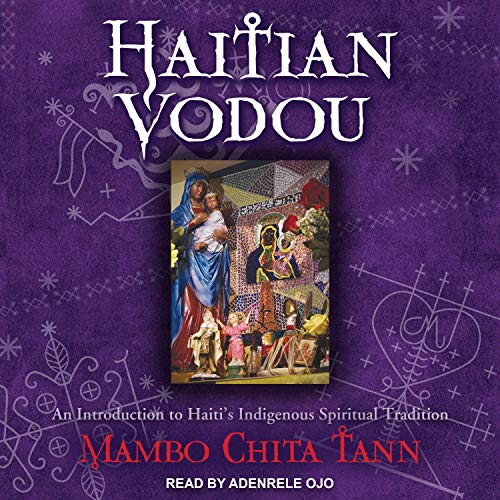Vodou, often misunderstood and misrepresented in popular culture, is a rich and complex spiritual tradition that has its roots in the African diaspora, particularly among the enslaved peoples of Haiti. At the heart of Vodou lies a collection of sacred texts and oral traditions that encapsulate its beliefs, practices, and the cultural identity of the Haitian people. This article delves into the sacred texts of Vodou, illuminating their significance and role in shaping the spiritual foundations of Haitian culture.
What is Vodou?
Vodou, or Voodoo, is more than just a religion; it is a way of life for many Haitians. It is an amalgamation of African spiritual practices, Catholicism, and indigenous Taíno beliefs, which together create a unique spiritual system. Vodou is characterized by its pantheon of spirits, known as Loa (or Lwa), rituals, ceremonies, and the deep connection to ancestors. The tradition emphasizes community, healing, and the balance of the physical and spiritual worlds.
The Role of Sacred Texts in Vodou

Unlike many world religions that have a central canonical text, Vodou does not rely on a singular written scripture. Instead, its teachings are disseminated through a combination of oral traditions, songs, and ritual practices. However, several texts and compilations have emerged that reflect the beliefs and practices of Vodou. These texts serve multiple purposes:
- Preservation of Knowledge: They help in preserving the rituals, prayers, and stories that form the backbone of Vodou.
- Spiritual Guidance: They provide guidance for practitioners in their spiritual journeys and interactions with the Loa.
- Cultural Identity: They affirm the cultural identity of the Haitian people, particularly in the context of colonial history and diaspora.
Key Sacred Texts of Vodou

While Vodou is primarily an oral tradition, several texts have been documented that are significant to its practice. Some of the most notable texts include:
- Le Livre des Esprits (The Book of Spirits): This text serves as a guide to the Loa, detailing their attributes, stories, and the rituals associated with each spirit. It is often consulted by practitioners for understanding the diverse personalities and realms of the Loa.
- Le Livre des Rites (The Book of Rites): This book outlines the various rituals and ceremonies performed in Vodou, including initiation rites, healing ceremonies, and community gatherings. It is essential for practitioners who wish to conduct rituals properly.
- Vodou Songs and Prayers: Many Vodou practices include songs and prayers that have been passed down through generations. These oral compositions often carry deep meanings and are vital for invoking the Loa during ceremonies.
- Haitian Vodou: An Introduction to the Religion: Authored by various scholars and practitioners, this compilation provides various perspectives on Vodou, including its history, practices, and cultural significance.
Oral Traditions and Their Importance

Oral traditions in Vodou are as crucial as written texts. The stories, songs, and chants are integral to the faith, often shared in communal settings. Oral history serves several purposes:
- Transmission of Knowledge: Oral traditions allow for the passing down of rituals, stories of the ancestors, and teachings about the Loa from one generation to the next.
- Community Building: Shared stories and songs foster a sense of community and belonging among practitioners, reinforcing collective identity.
- Spiritual Connection: Oral traditions create an experiential understanding of Vodou, allowing practitioners to feel the faith rather than just learn about it intellectually.
Case Studies: Vodou in Practice

To understand the significance of sacred texts and oral traditions, it is helpful to examine specific case studies of Vodou in practice. These examples showcase how texts and oral histories inform rituals and community life:
The Role of a Houngan or Mambo
In Vodou, the spiritual leaders—Houngans (male priests) and Mambos (female priests)—play a crucial role in guiding practitioners. They are often the custodians of sacred knowledge, using both texts and oral traditions to lead rituals and ceremonies. For example:
- Initiation Rites: A Houngan may conduct an initiation ceremony for new practitioners, relying on both written descriptions of the rites and oral histories to convey the significance of the process.
- Healing Rituals: Mambos frequently use Vodou songs and prayers, passed down through generations, to invoke the healing powers of specific Loa during community healing ceremonies.
Community Celebrations and Festivals

Vodou is not just practiced in isolation; it thrives in community settings. Festivals such as the Fête Ghede (celebration of the dead) highlight the importance of oral traditions and sacred texts:
- Storytelling: During the festival, stories of the ancestors and Loa are shared, reinforcing cultural identity and spiritual beliefs.
- Ritual Performances: Participants engage in ritual performances that draw upon both written texts and oral traditions, creating a dynamic spiritual experience.
The Intersection of Vodou and Haitian Culture
Vodou is deeply woven into the fabric of Haitian culture, influencing art, music, literature, and social practices. Understanding its sacred texts and oral traditions provides insight into the broader cultural landscape:
- Art and Symbolism: Vodou symbols, or veves, are often depicted in visual arts, reflecting the beliefs and stories associated with the Loa.
- Music and Dance: Many Haitian musical styles, such as rara, incorporate Vodou themes, emphasizing the connection between spirituality and cultural expression.
- Literature: Haitian authors frequently explore Vodou themes in their works, using the religion as a lens to discuss identity, resistance, and cultural heritage.
Challenges and Misunderstandings

Despite its rich heritage, Vodou faces numerous challenges, particularly in the form of misconceptions and stereotypes. The portrayal of Vodou in popular media often emphasizes the sensational aspects while neglecting its spiritual depth and community significance. Key challenges include:
- Stigmatization: Practitioners often face discrimination and stigma due to widespread misunderstandings about Vodou.
- Commercialization: The commercialization of Vodou in tourism and media can dilute its authenticity, leading to misrepresentation.
- Loss of Oral Traditions: As younger generations increasingly engage with modernity, there is a risk of losing vital oral traditions and knowledge.
In conclusion, the sacred texts and oral traditions of Vodou play a pivotal role in understanding the spiritual foundations of Haitian culture. They serve as repositories of knowledge, provide spiritual guidance, and affirm cultural identity amidst a complex historical backdrop. Through case studies and community practices, it becomes evident that Vodou is not merely a set of beliefs but a dynamic way of life that continues to evolve while remaining deeply rooted in its ancestral past. To appreciate Vodou fully is to recognize its significance in shaping the identity, resilience, and spirit of the Haitian people.